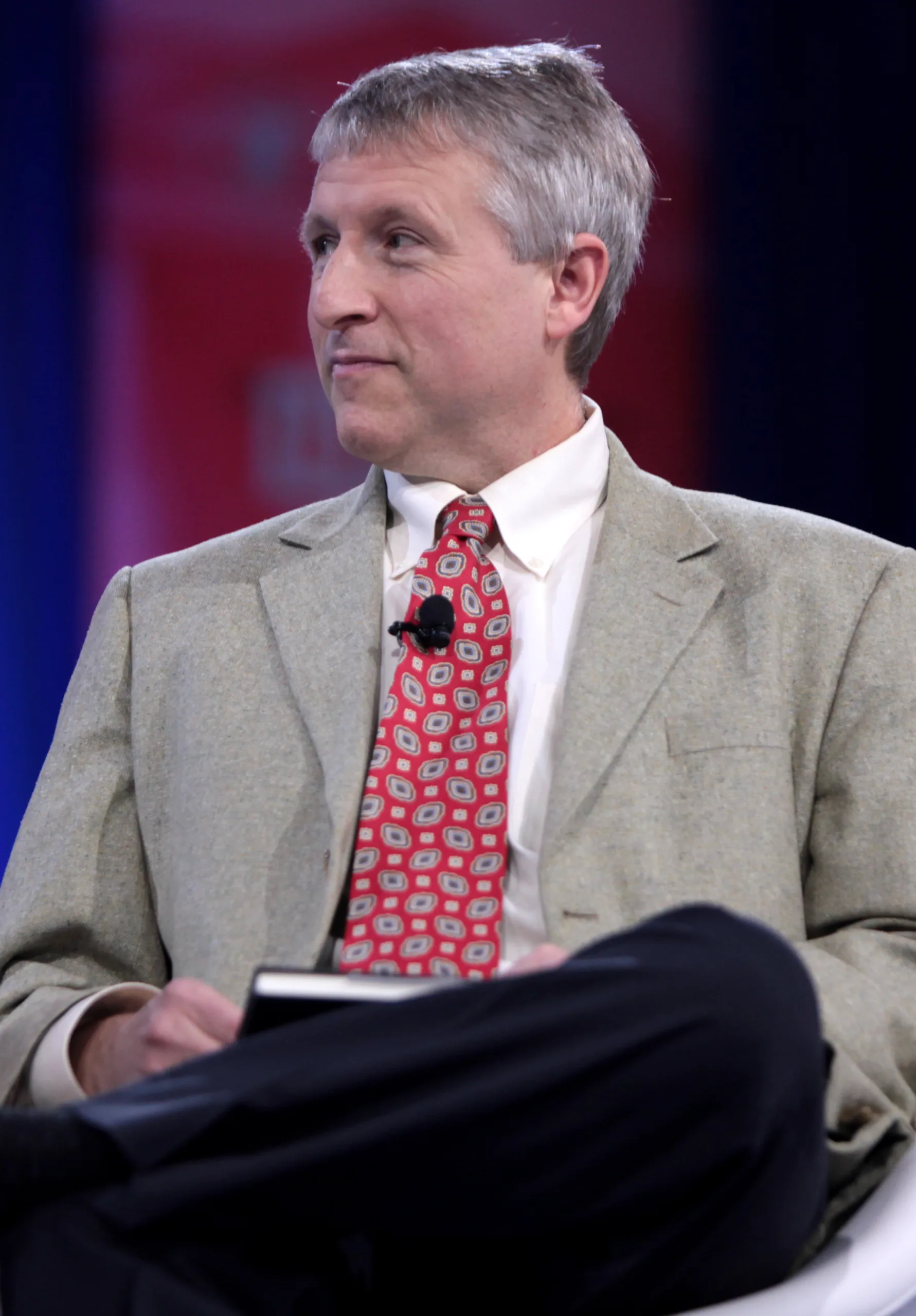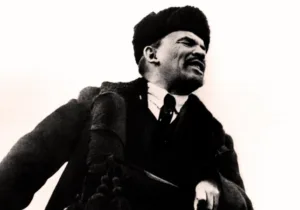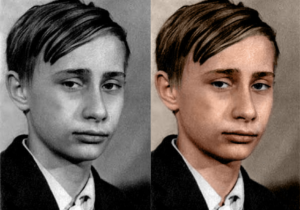Elaborating on the immediate impact of Vladimir Lenin’s Kaiser-financed journey back to Russia, this article originally appeared in the Fall 2017 issue of Providence‘s print edition. To read the original in a PDF format, click here. To receive future issues as soon as they are published, subscribe for only $28 a year.
It was spring, 1917. Hope held for bloodied Europe, even as the “Great War” mercilessly staggered on. By the time the catastrophic meat-grind was over, upwards of ten million of the continent’s young men would lie pulped across the fields of Europe.
Yet unbeknownst at the time, a still deadlier force was about to be unleashed. Bolshevism, international communism, would in the long century ahead annihilate ten times the dead of World War I. Its spearhead, a vicious Russian revolutionary, had long been kept at bay. He had been in exile in Switzerland, walled out of the motherland, across which by the year’s end he and his minions would scurry like a pestilent horde. And he was now on the move.
On the 10th of April, in the dark of night, a sealed boxcar passed through Germany. Hidden inside was a devil named Vladimir Ilyich Lenin, a literal teacher of hate. “We must hate,” Lenin told his commissars. “Hatred is the basis for communism.”
Rarely has an achieved ambition been so consequential.
A day earlier, Lenin had departed Zurich for the 2,000-mile journey to St. Petersburg. The fact that the Germans would let Lenin loose spoke to their desperation. Germany and the Central Powers had been at the throat of Russia and the Allies since the guns of August began smoking in 1914. But time was turning against them. General Ludendorff, Kaiser Wilhelm’s top military official, wanted Russia out of the war badly, especially so he could move his armies to the Western front to fight the British, French, and Americans, the latter of whom, days earlier, had officially entered the conflict.
Lenin was key to a takedown of Russia. German officials didn’t like Lenin and his Bolshevism, but they disliked the prospect of surrendering to Russia even more. And so Lenin would suddenly become the lucky beneficiary of “unexpected cooperation of the German High Command,” as Catherine Merridale puts it in her book Lenin on the Train. By 1917, notes Merridale, German officials in the military and foreign ministry had come to the point where they were happily—if cynically and strategically—using foreign insurgents to destabilize their enemies—of which Russia was enemy no. 1.[1]
Among those insurgents, there were no worse agitators than the exiled Russian communists. “From the very early months of World War I,” writes British historian Martin Kitchen, “the German government had been in touch with exiled Russian revolutionaries, many of them Bolsheviks, in the hopes that they could be used to undermine the Russian war effort against Germany.” Now, on the heels of American entry and the abdication of Czar Nicholas II, the German High Command felt both an urgency and an opportunity. They conspired to repatriate the Bolsheviks’ tip of the spear, Lenin himself, along with some 30 other co-revolutionaries—including the likes of Karl Radek and future Comintern (the Communist International) head Grigori Zinoviev, all of whom were opposed to the czar and Russian liberals.[2] All of this was done “in the hopes that they would topple the [Russian] Provisional Government,” notes Kitchen, “and sue to bring an end to Russia’s involvement in the war.”[3] And so, Ludendorff, with the Kaiser’s blessing, arranged to facilitate Lenin and his cohort’s return to St. Petersburg. The Kaiser even financed it.[4]
Lenin was thrilled. He had ached to return to Russia but had begun to despair of its ever happening. As recently as January of ‘17, a disheartened Lenin predicted he would not live to see a communist revolution in his homeland.[5] “It is impossible to wait any longer,” he lamented. “All hopes of a legal journey are in vain.” Not that he hadn’t tried. He attempted ploys ranging from the acquisition of false papers to hiding his identity by wearing wigs. But every plan dissipated in failure. “It seems we will not get to Russia,” he wrote dejectedly to a friend late that March. But then, suddenly, scant weeks later, the gloom lifted, courtesy of German desperation.
Lenin had vowed to pull Russia out of the war if he took the reins of government. Whatever the discontent with the czar, approving an armistice with Germany was a minority position among Russia’s differing political factions, whether czar loyalists or anti-czar liberals. The Germans, of course, knew Lenin’s position. Everyone knew Lenin’s position. The Bolsheviks would always frame World War I as a capitalist war that communism should have no part of. Lenin wanted the Russian army undermined, the Russian officers undermined, and the czar undermined.[6] The war was the ideal vehicle for the communist goal of annihilating the old order.
Thus, the Bolshevik and German wills aligned. Lenin had to go to Russia, where he and his communists could do what they did best: sow discord, fan hate, dish propaganda, and foment rebellion. But that was where their shared aspirations ended. As Trotsky later put it, “On Ludendorff’s part, this was an adventure dictated by the grave military situation in Germany. Lenin took advantage of Ludendorff’s plans to further thereby his own.”[7]
The Germans were cognizant of their gamble and the great risk the Bolsheviks posed not only to the long-term wellbeing of Russia, but to Germany, Europe, and the wider world as well. But whatever the dangers of Lenin seizing power, the Germans were apparently confident that they could contain the situation in the long run. “Lenin will overthrow the Russian patriots,” predicted Ludendorff, “and then I will strangle him—him and all his friends.”[8]
Rarely has a failed ambition been so consequential.
Lenin’s train arrived in St. Petersburg on April 16th. The Russian Provisional Government of Alexander Kerensky, which had been in charge since the czar’s abdication in early March, would not hold up. By October, Lenin’s Bolsheviks would seize Russia in a coup, followed by a bloody three-year civil war waged against the Mensheviks. The Bolsheviks would prevail, and Russia, the world, and the century to come would never be the same. The long nightmare would begin.
Richard Pipes, the Harvard professor of Russian history, calls Lenin’s revolution:
Arguably the most important event of the twentieth century… It is my considered judgment that, had it not been for the Russian Revolution, there would very likely have been no National Socialism; probably no Second World War and no decolonization; and certainly no Cold War, which once dominated our lives.[9]
That is a powerful statement, and it has the added potency of high feasibility. But none of it needed to happen.
The czar’s decline and fall—made possible by World War I—opened the way for a larger decimation of Russia, fostering the October Revolution. Pipes is struck by the “remarkable rapidity” at which the state fell apart after the czar’s abdication. He writes, “It was as if the greatest empire in the world, covering one-sixth of the earth’s surface, were an artificial construction, without organic unity, held together by wires all of which converged in the person of the monarch.” The very instant the monarch cut himself loose, the wires snapped, and the entire edifice fell in a heap.[10] Pipes summarizes: “The rulers of Russia would have been wise to stay out of World War I: for the immediate cause of the Revolution of 1917 would be the collapse of Russia’s fragile political structure under the strains of a war of attrition.”[11]
With the Bolsheviks in charge, the “spectre of communism” would haunt the globe. From its epicenter in Moscow and via the transmission pathways of the Comintern, the Bolshevik outbreak would manifest in a bloody project of world revolution. The disease event would not be contained to human lives alone. Communism proceeded to commit a “multitude of crimes not only against individual human beings but also against world civilization and national cultures,” writes Stephane Courtois, editor of the Harvard University Press 1999 classic The Black Book of Communism. He asserts, “Communist regimes turned mass crime into a full-blown system of government.”[12]
But it was always particularly effective when it came to body counts. In The Black Book, Courtois endeavored to tabulate the communist death toll for the 20th century. The result was a figure approaching 100 million souls.[13] It’s a staggering figure, but corroborated. Among other sources, the Victims of Communism Memorial Foundation, the preeminent U.S.-based center for detailing communist crimes, also estimated 100 million deaths.[14] Alas, this frightening number is likely conservative. More recent research puts the total figure closer to 140 million.[15]
By macabre comparison, Hitler’s war against the Jews claimed 6 million lives. His genocide against the Roma and Sinti (gypsies), the mentally disabled, and others he deemed “life unworthy of life” adds another 4 million to the toll. And still another chilling figure for comparison: The combined civilian dead from World Wars I and II—the most destructive conflicts in human history—was probably somewhere between 50-60 million. Such figures are controversial and difficult to measure with accuracy, but the comparative disparity remains illustrative. One might need to combine and double the tolls of the two world wars to approach communism’s grisly achievement in mass slaughter.
But whatever the number, historian Martin Malia, the late Cal-Berkeley Russian specialist, translates the ghastly figures into simple prose, calling the communist record the “most colossal case of political carnage in history.”[16]
None of this was what Ludendorff envisioned. Regarding his response to his massive miscalculation, we are not without comment. In his autobiography he writes:
By sending Lenin to Russia our Government had…assumed a great responsibility. From a military point of view his journey was justified, for Russia had to be laid low. But our Government should have seen to it that we also were not involved in her fall. The events in Russia gave me no cause for complete satisfaction. They considerably eased the military situation, but elements of the greatest danger still remained.[17]
Ludendorff wrote that clinical appraisal in 1919. In 1937, near the end of his life, he conceded more candidly that he had no idea what Lenin had really stood for when he gave the green light for the future dictator’s safe passage.[18]
World War I might have been limited largely to the farms and fields in isolated parts of Europe. But the bastard twin sons that it helped spawn—Bolshevism and international communism—would infect everything from the sugar fields and coffee farms of Cuba and Ethiopia to the rice paddies of Cambodia and snows of Siberia.
That is—quite literally—one hell of a result from one simple—and in all other ways quite unextraordinary—railway journey.
—
Paul Kengor is professor of political science at Grove City College and executive director of the college’s Center for Vision & Values. He is the author of over a dozen books, including his recent A Pope and a President: John Paul II, Ronald Reagan, and the Extraordinary Untold Story of the 20th Century.
Image Credit: Festival of the Second Congress of the Comintern on the Uritsky Square in Petrograd, by Boris Kustodiev, 1921. State Russian Museum, Saint Petersburg. Source: Wikimedia Commons.
[1] Catherine Merridale, Lenin on the Train (NY: Metropolitan Books, 2017), p. 6.
[2] See: Louis Fischer, The Life of Lenin (NY: Harper & Row, 1964), p. 110.
[3] Martin Kitchen, “The Ending of World War One, and the Legacy of Peace,” posted at bbc.co.uk.
[4] Fischer, The Life of Lenin, p. 111.
[5] Lenin had said that he doubted whether “I will live to see the decisive battles of the coming revolution.” See: Richard Pipes, Three “Why’s” of the Russian Revolution (New York: Vintage/Random House), pp. 8, 10, 12.
[6] See: Paul Johnson, Modern Times (New York: Harper Perennial, 1992), p. 58.
[7] Leon Trotsky, My Life: An Attempt at an Autobiography (Mineola, NY: Dover Publications, 2007, originally published by Charles Scribner’s Sons, 1930), p. 309.
[8] Quoted, among other places, in John W. Wheeler-Bennett, Wooden Titan: Hindenburg in Twenty Years of German History, 1914-1934 (London: Archon Books, 1936), p. 118; and Trotsky, My Life, p. 309.
[9] Pipes, Three “Why’s” of the Russian Revolution, p. 3.
[10] Pipes, The Russian Revolution, p. 336.
[11] Richard Pipes, A Concise History of the Russian Revolution (New York: Knopf, 1995), p. 56.
[12] Stephane Courtois et al, The Black Book of Communism (Harvard University Press, 1999), pp. 3-4.
[13] Courtois, Black Book, p. 4.
[14] victimsofcommunism.org/smith-joins-victims-of-communism/.
[15] See: Alexander Yakovlev, A Century of Violence in Soviet Russia (New Haven, Conn.: Yale University Press, 2002); and Jung Chang and Jon Halliday, Mao: The Unknown Story (New York: Knopf, 2005).
[16] Malia in Courtois, Black Book, p. x.
[17] Erich Ludendorff, Ludendorff’s Own Story: August 1914-November 1918, volume II (NY: Harper, 1919), pp. 126-27.
[18] See: Fischer, The Life of Lenin, p. 110.







 Live in the DC area? Sign-up for Providence's in-person events list!
Live in the DC area? Sign-up for Providence's in-person events list!